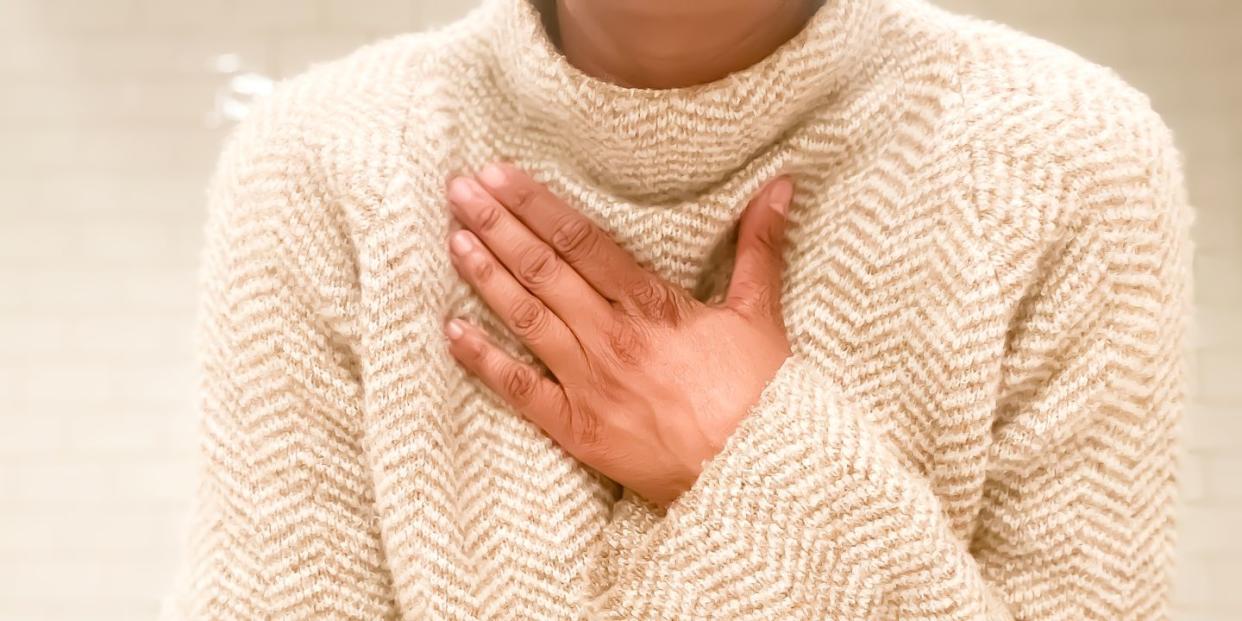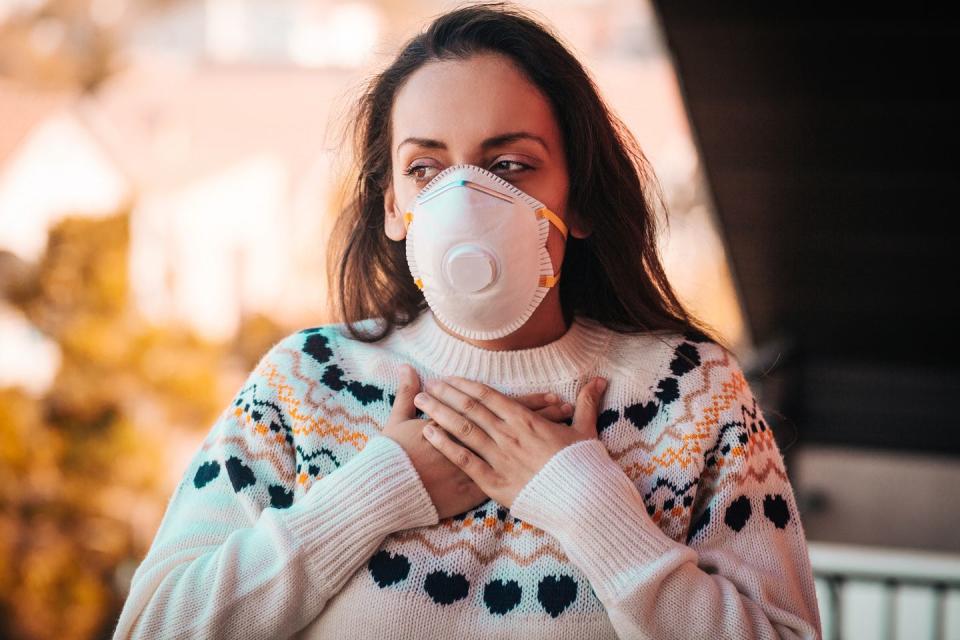This is what shortness of breath actually feels like

It's hoped that coronavirus has already reached its peak in the United Kingdom, but that doesn't mean it will disappear any time soon. Until there's a proven-to-work vaccine against COVID-19, the contagious virus will continue to pose a risk, which means it's still super important to be aware of the symptoms.
Along with a fever and a dry, persistent cough, medical experts have warned that shortness of breath is a common indication of the virus. But if you've never experienced shortness of breath before, it can be hard to know exactly what that means. We asked Dr Ravi Tomar, a GP at Portland Medical, to talk us through all the ways a doctor might try to determine whether a patient is experiencing shortness of breath, to make it a little clearer.
It seems, however, there can be more than one way for shortness of breath to manifest. "The feeling of shortness of breath can be attributed to a number of different symptoms. These include a difficulty in getting air in and out of your lungs, the desire to breathe more quickly and a tightness in the chest," explains Dr Ravi.

"On most occasions it will be relatively simple to tell you are short of breath as you will experience these symptoms," he adds. However, he notes that complications can arise because "shortness of breath is very subjective and has a broad range of severity.
"To some people, it may simply be the feeling of breathing more than normal, to others it may feel as though they have just finished an exercise class, despite being sat perfectly at rest."
One useful test you can perform - which is a question many doctors will ask during consultations with patients - is "seeing whether you find it difficult to hold a conversation without pausing for breath or needing to move to a more ventilated area."
It's important to keep in mind, however, that if you begin to notice breathlessness despite being sedentary, or unnatural tightness in your chest, this can cause alarm, which can perpetuate the feeling due to anxiety. "Unfortunately, this alarm can further contribute to the feeling of breathlessness and anxiety will worsen the sensation overall," says Dr Ravi.

There is an unfortunate overlap in symptoms of a panic attack, and some of the symptoms of coronavirus, which means you can find yourself in something of a cycle. Read our expert advice on how to tell the difference between the two.
If you don't believe your symptoms are anxiety-driven, and appear to be linked to coronavirus itself, it's important to self-isolate with the rest of your household for 14 days.
The information in this story is accurate as of the publication date. While we are attempting to keep our content as up-to-date as possible, the situation surrounding the coronavirus pandemic continues to develop rapidly, so it's possible that some information and recommendations may have changed since publishing. For any concerns and latest advice, visit the World Health Organisation. If you're in the UK, the National Health Service can also provide useful information and support, while US users can contact the Center for Disease Control and Prevention.
Like this article? Sign up to our newsletter to get more articles like this delivered straight to your inbox.
You Might Also Like

